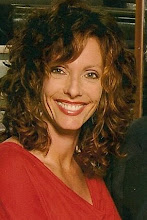There is a sport called orienteering where participants receive nothing but a map and a compass and then have to find their way to locations on the map and back to the starting point. They are not limited as to how they can find the target locations except by their thinking. They can hike, ski, swim, or get creative. (I think using a vehicle of any kind is cheating.) They just have to get there. I have decided that life is a lot like this sport and, recovering from a brain injury has made me really good at it. Who would have thought?
In his book The Brain That Changes Itself, Norman Doidge tells of Paul Bach-y-Rita, a scientist and rehabilitation specialist, who has developed a “tactile vision device” which allows cognitively blind people to “see” by their brains interpreting sensations from their skin. He has also developed a glove for NASA astronauts with sensors on the outside allowing them to “feel” and perform delicate movements. He has even developed a condom that allows males with spinal cord injuries to have orgasms. No lie! It is all based on the premise that these experiences occur “in the brain” and are just the brain’s interpretation of stimuli. If one way doesn’t work, the brain can reroute the signals - from the skin to the visual cortex for example.
He was inspired to develop these because his father, Pedro Bach-y-Rita, had stroke at 65 which left him paralyzed in his face, and in half of his body and unable to speak. He was given no hope of recovery by his doctors and was advised to be institutionalized. Instead, he was brought home and Paul and his brother, George, worked to rehabilitate him.
As is often the case I have found, not knowing anything and not listening to the “experts” was a good thing. They used the way a baby learns as their model for rehabilitation. Pedro first learned to crawl, then stood, and then walked. They played on the floor with him with coins and marbles. They turned everyday experiences into exercises. Washing the dishes became rehabilitation. He relearned to speak and to write and to do everything – even mountain climbing. He made a full recovery and went on to resume teaching at a college and even remarried. Go, old Geezer! He died at 72 of a heart attack.
This recovery and all Bach-y-Rita’s devices are possible because of neuroplasticity which is the ability of the brain to reorganize itself based on the input it receives. If one route is damaged or blocked in some way, the brain can actually grow new pathways based on consistent, repeated incoming stimuli.
Life is exactly like this. We have to develop a nueroplastic attitude towards living. A reader, Dr. Mark Langer, suggested the idea of this in a comment. I love it. Never thought of it that way before. He is exactly right.
Like the orienteering sport, we have to use what tools we have on hand right here, right now, and our creativity, our ingenuity, our guts, our determination, and our heart to get to the next checkpoint location or goal in life or just to the next day sometimes…whatever the case may be.
If the easiest path is not feasible, find a different way. Make it work. Even an inch is progress. It doesn’t happen nearly quick enough for most of us, (me included!) but it will happen. You can and will get from here to there.
Tell people where they are going and they may get there; inspire them with why they are going there and they will move mountains.”
~Christopher Novak
Friday, September 3, 2010
Subscribe to:
Post Comments (Atom)

http://www.americanwaymag.com/ron-husmann-university-of-wisconsin-kildare-yuri-danilov
ReplyDeleteThank you for the great link to an article about some amazing work being done at the University of Wisconsin inspired by Bach-y-Rita's work. An electronic tongue stimulator device is being used to deliver impulses to the brain where nerve pathways damaged by MS cannot anymore. It is accomplishing some amazing results in many areas. Neato!
ReplyDeleteThanks for the mention. It's true. In life we have to be plastic and malleable. If we are rigid and brittle, we run the risk of quite literally, snapping. WE have to draw upon all our resources - known and as yet untapped -to get through whether brain injured or "normal".
ReplyDeleteOrienteering was one of the things I learned from & did w/ my dad. The deeper lesson for BI is now apparent. Thanks!!
Mark, what a creative, fun sport to do with your Dad and you were learning at the same time!I think this kind of adaptability needs to be one of the basic skills we teach our kids along with the three R's and others.
ReplyDeleteI learned the necessity of this trait the hard way as I literally did snap. There is a saying that goes something like: It is the reed that bends that does not break in the storm. I am blowing with the wind from here on.